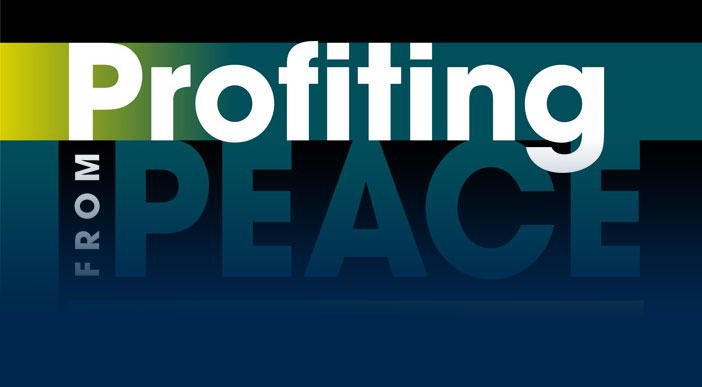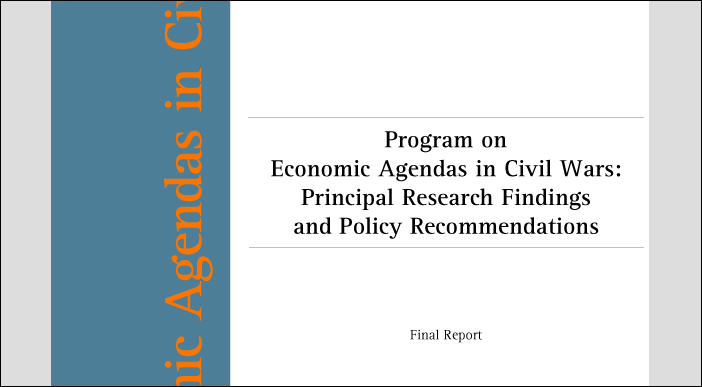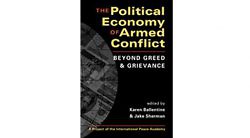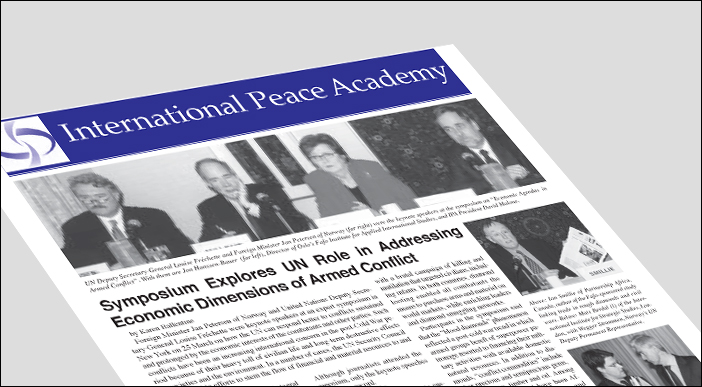
In contemporary civil wars, combatants’ access to lucrative natural resources has been both a means and a motive for armed conflict and thus has often served to counter incentives for peace.
Read more
In contemporary civil wars, combatants’ access to lucrative natural resources has been both a means and a motive for armed conflict and thus has often served to counter incentives for peace.
Read more
The Program on Economic Agendas in Civil Wars (EACW) was launched in 2000 in response to a convergence of political factors, academic interests, and policy concerns that pointed to the need for conflict prevention and resolution policies to be informed by a systematic understanding of the economic dimensions of contemporary civil wars.
Read more
Globalization, suggest the authors of this collection, is creating new opportunities—some legal, some illicit—for armed factions to pursue their agendas in civil war.Within this context, they analyze the key dynamics of war economies and the challenges posed for conflict resolution and sustainable peace. Thematic chapters consider key issues in the political economy of internal wars, […]
Read more
A report of a symposium held March 25, 2002, co-organized by the International Peace Academy [now International Peace Institute] and the Fafo Institute for Applied Social Science, Programme for International Cooperation and Conflict Resolution (PICCR) and sponsored by the Government of Norway as an integral part of its Presidency of the UN Security Council.Download
Read moreWhile Israel wages war against Hamas in Gaza and Russia pursues its war in Ukraine, an…
In March, the 68th Commission on the Status of Women (CSW68) convened in…
For the first time in nearly 20 years, Sudan is without a UN…
At a time of deepening competition over artificial intelligence (AI) and the microchips, data centers, and critical minerals that power it, the world experienced a rare glimmer of…
While the guns have fallen silent in Tigray after the Pretoria Cessation of Hostilities…